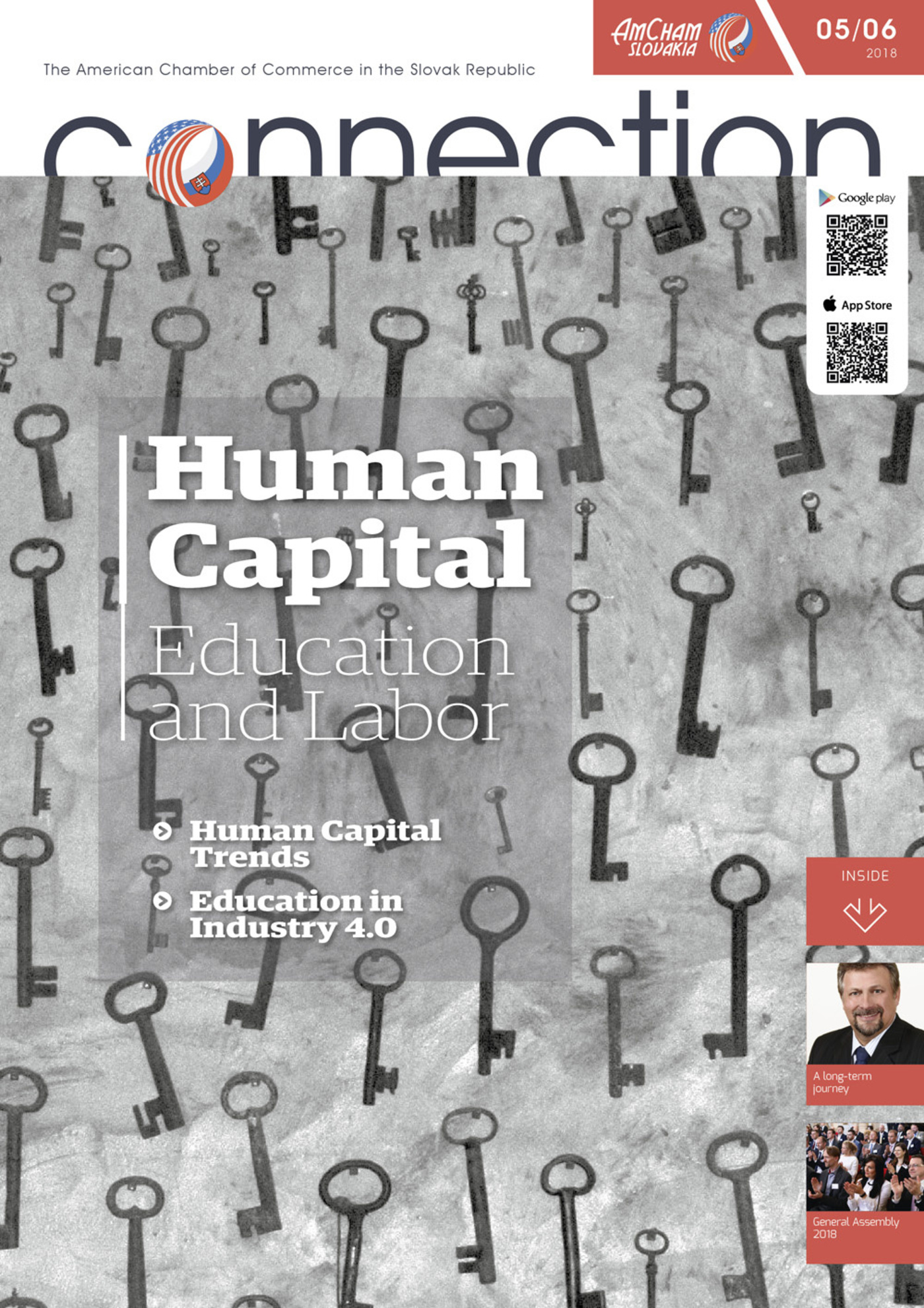In a fast-changing knowledge economy, 21st century digital skills such as communication, collaboration, creativity and critical thinking support competitiveness and innovation capacity. “Skills for Success – from University to Workplace” aims to teach students highly effective soft skills, which graduates often lack. This course is designed to contribute to developing students’ intellectual capital and improving their ability to be able to work at IT companies. In 2017/2018, the Business Service Center Forum (BSCF, under the auspices of the American Chamber of Commerce in Slovakia – AmCham) offered this course for first time in the Košice region to students of the Faculty of Electrical Engineering and Informatics at the Technical University of Košice. Twelve Business Informatics students and four Computer Science students attended the first course in the winter semester (October – November 2017). Member companies of the BSCF prepared six interactive training sessions for our students.
The study program Business Informatics at the Department of Cybernetics and Artificial Intelligence, FEEI TU of Košice, prepares graduates with a combination of informatics and economic knowledge and skills at all three levels (bachelor, master, PhD.). Our courses address current IT trends, such as data analytics, big data, processing data from smart devices, cloud computing, web and mobile application development, user experience, IT management, etc. The “Skills for Success” course was designed to extend the knowledge of masters degree students.
Workshops
Workshop 1 dealt with time management, especially how to manage multiple tasks and avoid wasting time. This workshop was led by a Siemens representative.
Workshop 2 addressed the importance of teamwork in the workplace. It was led by a LafargeHolcim representative, and the students completed practical and interactive exercises in different team roles.
Workshop 3 was provided by T-Systems Slovakia and focused on verbal and non-verbal communication. Students learnt about von Thun’s four-sides communication model.
Workshop 4 looked at conflicts as moments that cannot be prevented and where the most important thing is to learn how to manage them. A LafargeHolcim representative presented different strategies and techniques for dealing with conflicts.
Workshop 5 was led by an AT&T representative and presented three steps for creating a presentation – content creation, basic techniques and principles of design and delivery.
Workshop 6 looked at effective feedback. Students learned how to give and receive effective feedback relating to improving performance and behavior. The workshop was led by a Siemens representative and included a final presentation by student groups. Each presentation was evaluated by trainers from Siemens, LafargeHolcim, and AT&T. The evaluation was divided into visualization, content quality, participation and overall presentation. All the lecturers expressed their satisfaction with the performance of the students, and highlighted areas for improvement. The students were able to evaluate and comment on their classmates’ presentations and apply effective feedback.
Conclusion
Students completed a questionnaire on the course with the following results: 81% were very satisfied and 19% were satisfied with the course. 88% will recommend the subject to a friend or classmate. The feedback confirmed our assumption that students of IT-oriented study programs had different expectations as regards which topics are important to them. For example, the communication workshop had the lowest rating (3.18) compared to 3.5 for economically-oriented study programs. Our students gave the time management workshop a very high rating (3.93). These findings will be used during Q1 2018 discussions at BSCF in Košice to determine which topics will be retained, supplemented and replaced.
I would like to thank the Business Service Center Forum and all participating lecturers for this opportunity and I feel certain that the positive feedback will increase interest in this subject and other forms of cooperation.
František Babič, Head of Centre of Business Informatics, TUKE, Department of Cybernetics and Artificial Intelligence, Faculty of Electrical Engineering



Follow us